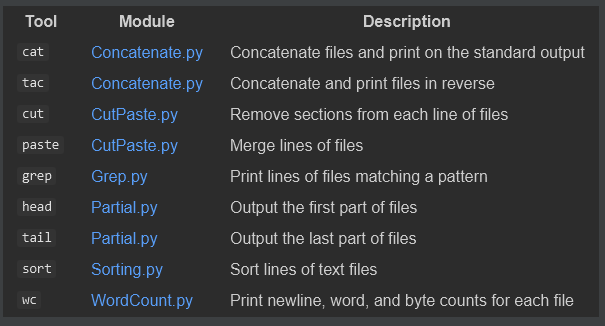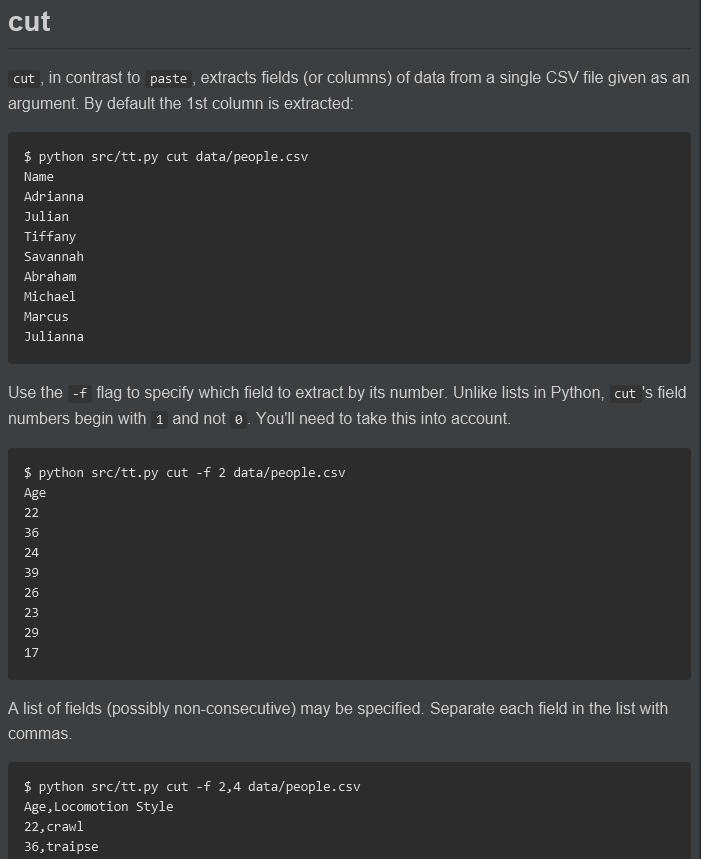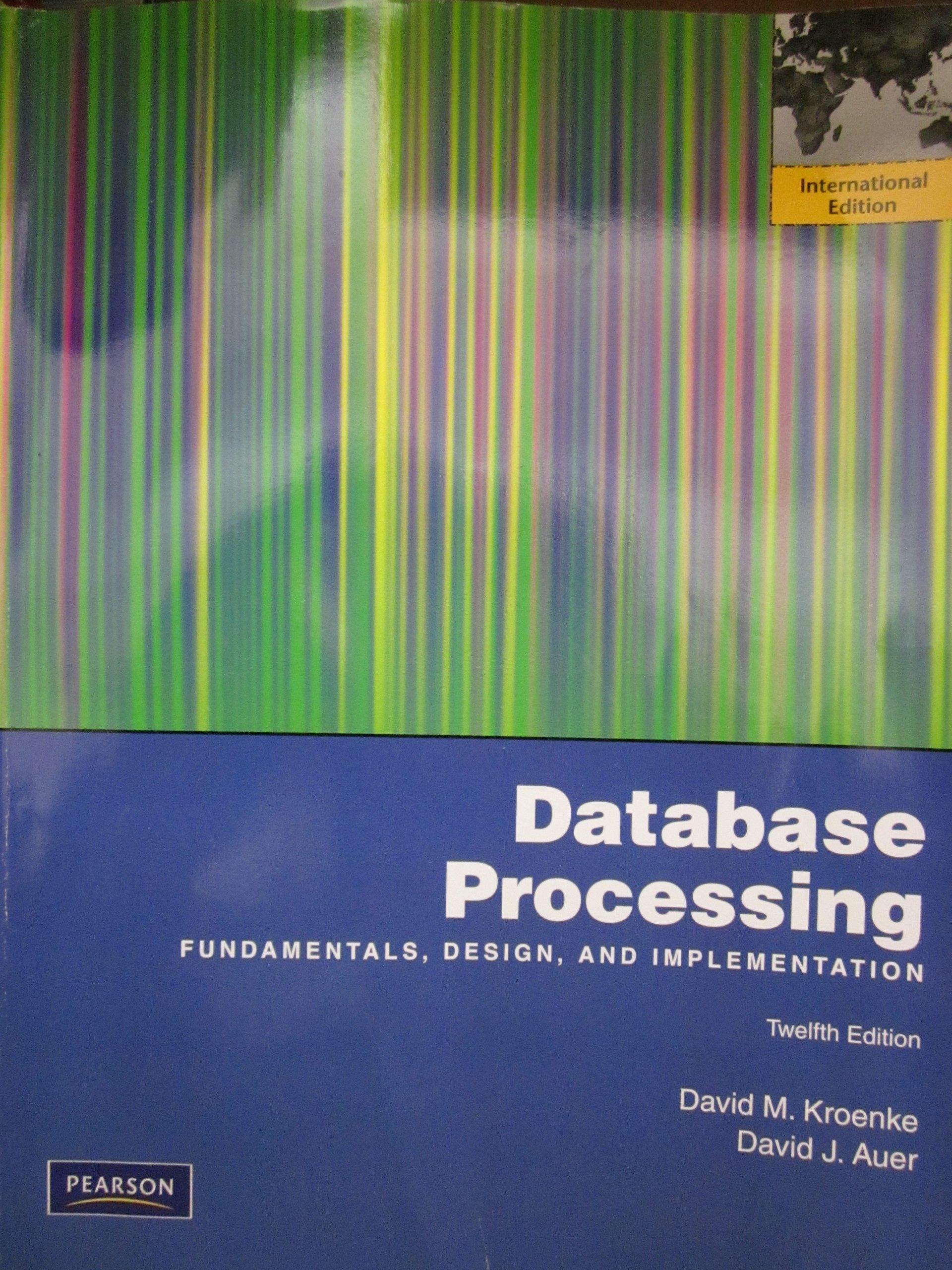

Tool Module Description cat tac Concatenate.py Concatenate.py CutPaste.py Concatenate files and print on the standard output Concatenate and print files in reverse Remove sections from each line of files cut paste CutPaste.py Merge lines of files grep head tail Grep.py Partial.py Partial.py Sorting.py WordCount.py Print lines of files matching a pattern Output the first part of files Output the last part of files Sort lines of text files Print newline, word, and byte counts for each file sort WC cut cut , in contrast to paste , extracts fields (or columns) of data from a single CSV file given as an argument. By default the 1st column is extracted: $ python src/tt.py cut data/people.csv Name Adrianna Julian Tiffany Savannah Abraham Michael Marcus Julianna Use the -f flag to specify which field to extract by its number. Unlike lists in Python, cut 's field, numbers begin with 1 and not e. You'll need to take this into account. $ python src/tt.py cut -f 2 data/people.csv Age A list of fields (possibly non-consecutive) may be specified. Separate each field in the list with commas. $ python src/tt.py cut -f 2,4 data/people.csv Age, Locomotion Style 22, crawl 36,traipse Tool Module Description cat tac Concatenate.py Concatenate.py CutPaste.py Concatenate files and print on the standard output Concatenate and print files in reverse Remove sections from each line of files cut paste CutPaste.py Merge lines of files grep head tail Grep.py Partial.py Partial.py Sorting.py WordCount.py Print lines of files matching a pattern Output the first part of files Output the last part of files Sort lines of text files Print newline, word, and byte counts for each file sort WC cut cut , in contrast to paste , extracts fields (or columns) of data from a single CSV file given as an argument. By default the 1st column is extracted: $ python src/tt.py cut data/people.csv Name Adrianna Julian Tiffany Savannah Abraham Michael Marcus Julianna Use the -f flag to specify which field to extract by its number. Unlike lists in Python, cut 's field, numbers begin with 1 and not e. You'll need to take this into account. $ python src/tt.py cut -f 2 data/people.csv Age A list of fields (possibly non-consecutive) may be specified. Separate each field in the list with commas. $ python src/tt.py cut -f 2,4 data/people.csv Age, Locomotion Style 22, crawl 36,traipse








